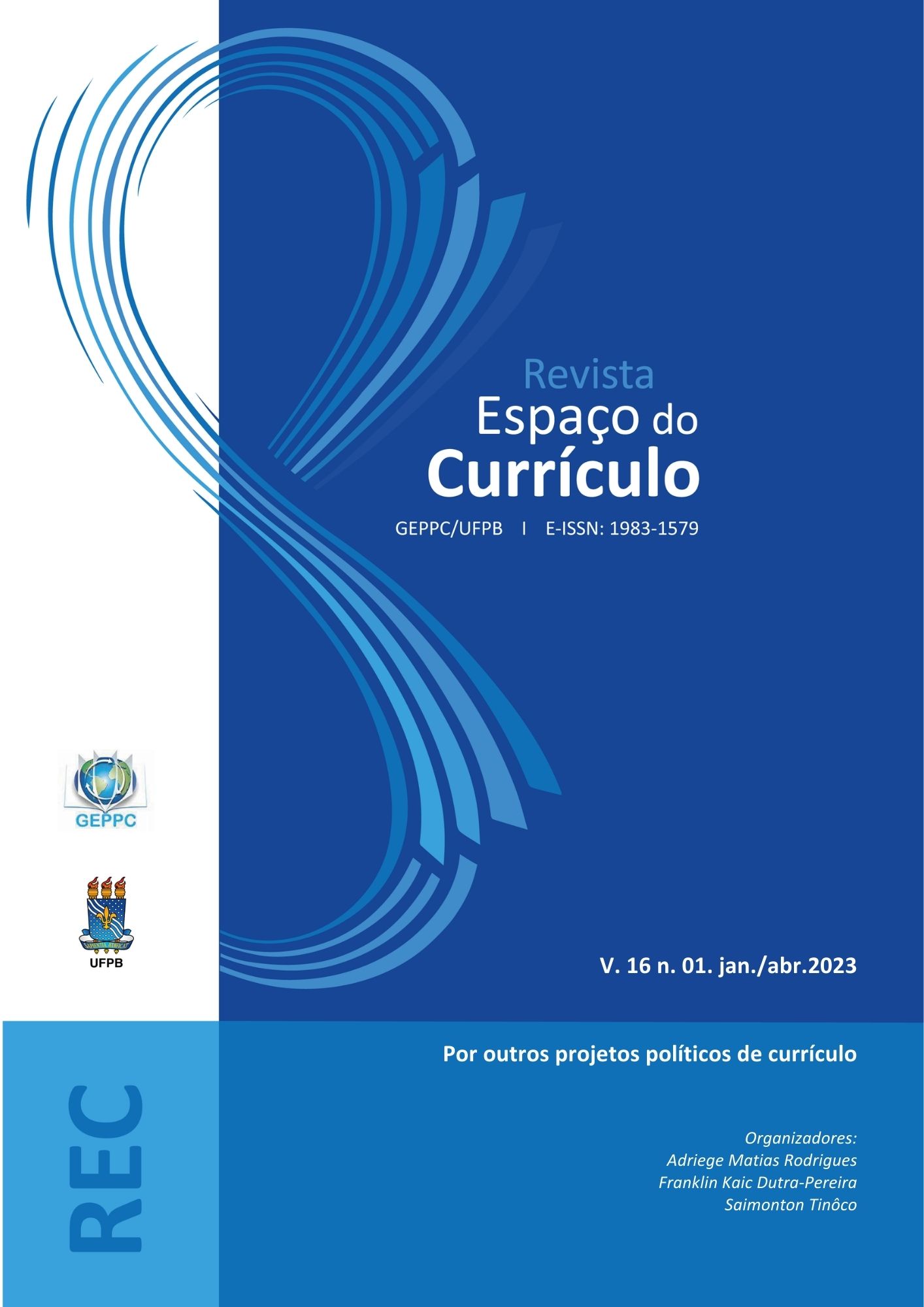CURRICULUM CONCEPTIONS AND TECHNOLOGIES
the uses under debate
DOI:
https://doi.org/10.15687/rec.v16i1.60306Keywords:
Curriculum, Technologies, UsesAbstract
This article aims to pass through the trajectory of the main curriculum concepts, and address how each one was linked to a particular use of technologies. The aim is to problematize the instrumental and uncritical uses of technologies that are practiced in curriculum. In opposition to this proposal, it is argued that both curriculum and technologies can be understood through their cultural dimension, that is, the practice of meaning. Of theoretical nature, this study was developed by establishing conversation networks with Freirean thought and authors from the field of curriculum and philosophy of technology, in an attempt to problematize the main curriculum traditions and the different conceptions and uses of technology. In the end, we propose what we call techno-curricular practices, from a post-structural perspective, which can be understood as a set of curricular practices that make use of technologies, and are involved with the symbolic processes that they manufacture knowledge, meanings, existential territories, desires, and all that, permeated by power relations.
Downloads
Metrics
References
APPLE, Michael. Relacoes de classe e de gênero e modificacoes no processo do trabalho docente. Cadernos de Pesquisa, São Paulo, n. 60, p. 3–14, 1987.
CASTELLS, Manuel. A Sociedade em Rede. São Paulo: Paz e Terra, 2000.
CUPANI, Alberto. Filosofia da tecnologia: um convite. 3. ed. Florianópolis: Editora da UFSC, 2011.
FEENBERG, Andrew. What is Philosophy of Technology? In: 2003, Tokyo. Anais [...]. Tokyo: Komaba, 2003.
FEENBERG, Andrew. Teoria Crítica da Tecnologia: um panorama. Tailor-Made BioTechnologies, [S. l.], v. 1, n. 1, p. 99–117, 2005.
FONSECA, Tania Mara Galli; COSTA, Luiz Artur; KIRST, Patrícia Gomes. Ritornelos para o pesquisar no contexto das tecnologias virtuais do sensível. Informática na educação: teoria e prática, [S. l.], v. 11, n. 1, p. 38–46, 2008.
FREIRE, Paulo. Pedagogia do Oprimido. Rio de Janeiro: Paz e Terra, 1977.
FREIRE, Paulo. Pedagogia da autonomia: saberes necessários à prática educativa. 25. ed. São Paulo: Paz e Terra, 1996.
FREIRE, Paulo. A importância do ato de ler. In: A importância do ato de ler: em três artigos que se completam. 41. ed. São Paulo: Cortez, 2003.
HEINSFELD, Bruna Damiana; PISCHETOLA, Magda. O discurso sobre tecnologias nas políticas públicas em educação. Educação e Pesquisa, [S. l.], v. 45, p. 1–18, 2019.
LOPES, Alice Casimiro; MACEDO, Elizabeth. Teorias de currículo. 1. ed. São Paulo: Cortez, 2011.
MACEDO, Elizabeth. Currículo como espaço-tempo de fronteira cultural. Revista Brasileira de Educação, [S. l.], v. 11, n. 32, p. 285–296, 2006.
MITCHAM, Carl. Que és la filosofía de la tecnología? 1. ed. Barcelona: Ed. Anthropos, 1989.
PARASKEVA, João Menelau; OLIVEIRA, Lia Raquel. Teoria crítica, currículo e tecnologias educativa. In: PARASKEVA, João M.; OLIVEIRA, Lia R. (org.). Currículo e Tecnologia Educativa - Volume 2. Portugal: Edições Pedago, 2008.
RODRIGUES, Alexsandro. Conversas introdutórias sobre um campo de estudo: o currículo em questão. In: RODRIGUES, Alexsandro (org.). Currículo na formação de professores: diálogos possíveis. Vitória: Universidade Federal do Espírito Santo, Secretaria de Ensino a Distância, 2018.
SILVA, Tomas Tadeu Da. Documentos de identidade: uma introdução às teorias do currículo. 3. ed. Belo Horizonte: Autêntica, 2011.
SILVA, Tomaz Tadeu Da. O currículo como fetiche: a poética e a política do texto curricular. 1. ed. Belo Horizonte: Autêntica, 2010.
SIMON, Roger. A pedagogia como uma tecnologia cultural. In: SILVA, Tomaz Tadeu Da (org.). Alienígenas na sala de aula: uma introdução aos estudos culturais em educação. 11. ed. Petrópolis, RJ: Vozes, 2013.
Downloads
Published
How to Cite
Issue
Section
License
Copyright (c) 2023 Curriculum Space Journal

This work is licensed under a Creative Commons Attribution 4.0 International License.
By submitting an article to Curriculum Space Journal (CSJ) and having it approved, the authors agree to assign, without remuneration, the following rights to Curriculum Space Journal: first publication rights and permission for CSJ to redistribute this article. article and its metadata to the indexing and reference services that its editors deem appropriate.
















